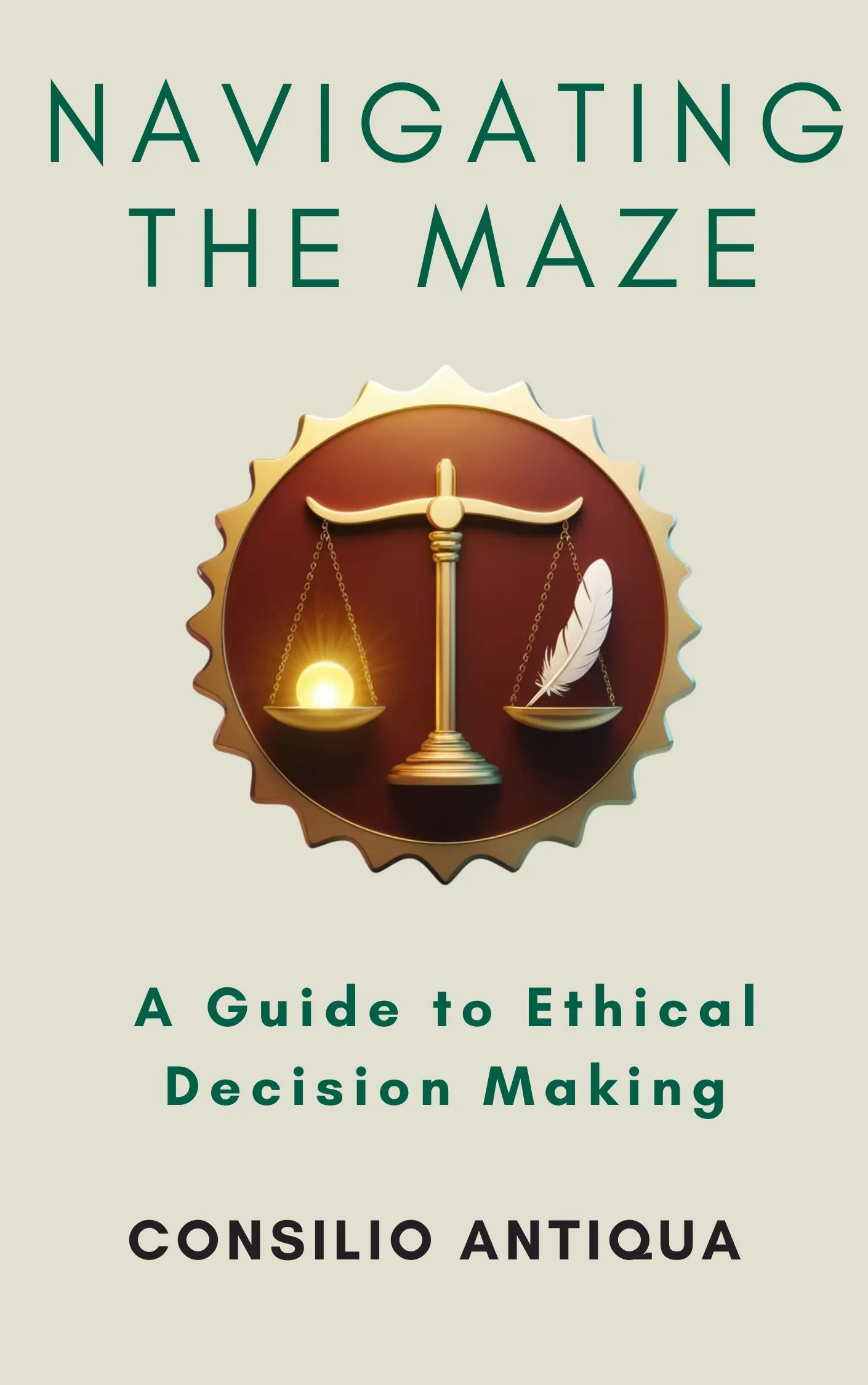
Navigating the Maze | 19: Ethical Reflection and Continuous Improvement
19: Ethical Reflection and Continuous Improvement
Never Stop Learning: Ethics is a Marathon, Not a Sprint
You've made it this far! You've dug into the nitty-gritty of ethics, explored different ways of thinking about right and wrong, and tackled some real-world dilemmas. But here's the thing about ethical decision-making: it's not a one-and-done deal. It's like learning to play the guitar – you don't become a rockstar overnight. It takes practice, patience, and a willingness to learn from your flubs along the way.
Think about it this way: Remember when you first learned to ride a bike? You probably wobbled a bit, maybe even took a tumble or two. But with each attempt, you got a little steadier, a little more confident. Ethical choices are similar. Each time you face a tricky situation, you have a chance to fine-tune your inner compass and become a more thoughtful, principled person.
Looking Back to Move Forward
Let's rewind for a second. Think about a recent situation where you had to make a tough choice – maybe it was something small, like deciding whether to fess up to a little white lie, or something bigger, like dealing with a conflict at work. How did you handle it? Looking back, how do you feel about your decision?
Taking time to reflect on our choices is like hitting the "pause" button on life's remote. It gives us a chance to really examine what happened, understand the values that drove our actions, and learn from the experience. It's like having a heart-to-heart with yourself, figuring out what works and what needs tweaking.
Here's a little nugget of wisdom: Studies have shown that people who regularly reflect on their experiences tend to make better choices in the future. It's like having a superpower – the ability to learn from your past and make smarter moves next time.
Tools for Your Ethical Toolkit
So, how do we actually do this reflection thing? Here are a few handy tools to get you started:
The Ethics Journal: Grab a notebook (or create a digital doc) and turn it into your personal ethics journal. Every time you encounter a sticky situation, jot down a few notes about it. What was the context? What values were in play? What options did you consider? What did you ultimately decide, and how do you feel about it now? Over time, you'll start to see patterns in your decision-making process. You might even surprise yourself with how much you've grown!
The Friend-tor: Find a trusted friend, colleague, or mentor – someone you admire for their good judgment – and ask for their honest feedback on your ethical choices. It can be a bit nerve-wracking, but it's incredibly valuable. Imagine having a chat with a wise owl who's seen it all. Their insights can help you spot blind spots and gain a fresh perspective.
The Ethics Check-Up: Just like we get regular check-ups for our physical health, it's a good idea to do an "ethics check-up" every now and then. Take a look at your daily routines, your work habits, your interactions with others. Are your actions aligned with your values? Are there any areas where you could do better? Think of it like spring cleaning for your conscience – a chance to clear out the cobwebs and make sure everything is in tip-top shape.
Your Ethical Upgrade Plan
Now, let's get down to brass tacks. Think of your ethical growth as a personal project – a chance to become the best version of yourself. Here's a blueprint to help you get started:
Know Your North Star: First things first, figure out what truly matters to you. What are your core values? Is it honesty, kindness, fairness, or something else entirely? Write them down and think about how they guide your choices.
Set Your Sights: What are your ethical goals? Do you want to become more compassionate? More courageous? More mindful of your impact on others? Be specific!
Make a Move: Break down your goals into bite-sized actions. If you want to be a better listener, maybe you could start by practicing active listening in your conversations. If you want to be more generous, maybe you could volunteer at a local charity.
Gather Your Resources: Don't be afraid to seek out guidance. Read books, listen to podcasts, attend workshops – there are tons of resources out there to help you on your ethical journey. Think of it like building a strong foundation for your ethical house.
The Adventure of a Lifetime
The wonderful thing about ethical decision-making is that it's an ongoing adventure. There's always something new to learn, a new challenge to face, a new opportunity to grow. It's like exploring a vast and fascinating landscape, with each step revealing new insights and perspectives.
Here's a thought to keep you going: "The best way to predict the future is to create it." By actively shaping your ethical choices, you're not only improving your own life but also making the world a little bit brighter for everyone around you.
Time for Reflection: Take a moment to think about your own ethical journey. What have you discovered about yourself? What are some areas where you'd like to level up? Jot down your thoughts in your ethics journal.
Take Action: Create your own ethical upgrade plan. Identify your values, set your goals, and outline the steps you'll take to become the ethical superhero you're meant to be.
As you embark on this adventure of ethical reflection and continuous improvement, remember that every choice you make is a chance to learn and grow. By investing in your ethical development, you're not only making a difference in your own life but also contributing to a more just and compassionate world.
